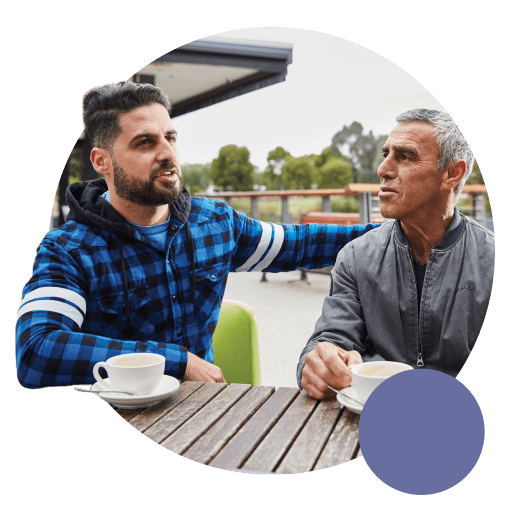Practical support for family carers.
Carer Gateway is an Australian Government initiative for family carers in Australia. It provides a mix of free online, telephone and in-person supports, services and advice. These services have been designed and tested by carers to help reduce stress and build resilience in the caring role.
In addition to a number of resources available through the Carer Gateway website, supports and services are being delivered throughout the states and territories. For Western Australia, Carers WA is leading the delivery of these services, in partnership with our delivery partner, HelpingMinds.



To access Carer Gateway services call 1800 422 737 or request a callback by completing our online form here.
In-person peer support groups
An opportunity for carers to share stories, knowledge and experience in a safe and supportive environment. Groups meet regularly on a drop-in basis.
Find out more…
Carer coaching
Coaches work with carers one-on-one to explore any personal goals and find a balance between responsibilities as a carer and their own needs.
Find out more…
Counselling
Available in-person, online or over the phone through qualified and accredited counsellors.
Find out more…
Tailored support package
Packages combine a range of practical supports to assist with the caring role or help access education or employment.
Find out more…
Emergency respite
Available for carers who experience an urgent and unplanned event that temporarily restricts their ability to continue caring such as illness or injury. Please note that this is not a crisis service.
Find out more…
Online supports
Skills courses, self-guided coaching and community forums can be accessed via the Carer Gateway website.
Find out more…
Call 1800 422 737 Monday to Friday between 8.00am and 5.00pm WA local time. An after-hours service is available outside of these hours, including weekends.
Alternatively, you can request a call back by completing an online form here.
If you are an agency and would like to refer a carer to Carer Gateway, please call 1800 422 737 or complete our online referral form.
Please note: Services are free to access for anyone looking after a family member or friend with disability, a medical condition, mental health challenge, alcohol or substance dependency or someone who is frail due to age. Access does not affect any other state or territory carer services, young carer bursaries or other services delivered through My Aged Care or the National Disability Insurance Scheme.